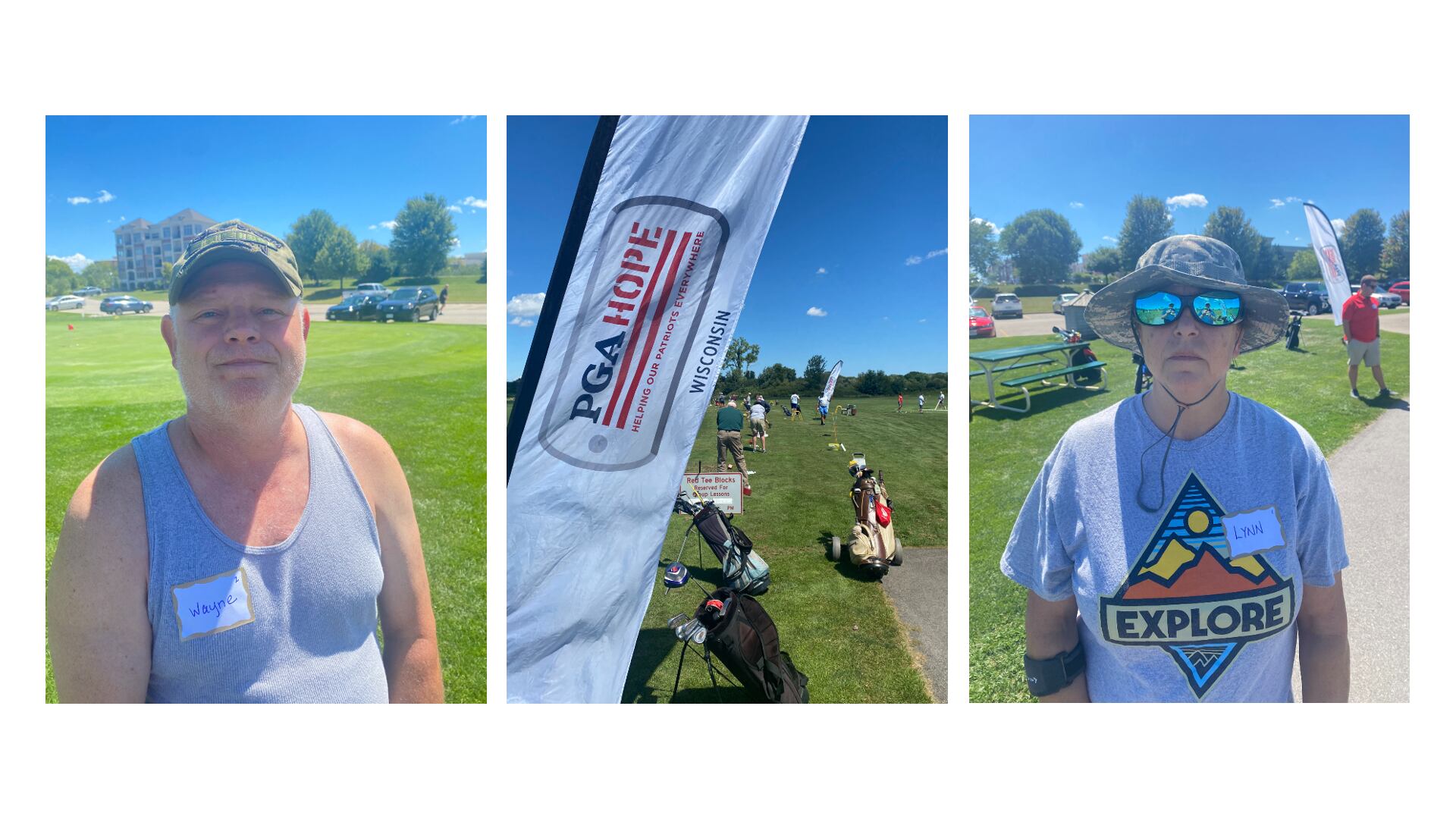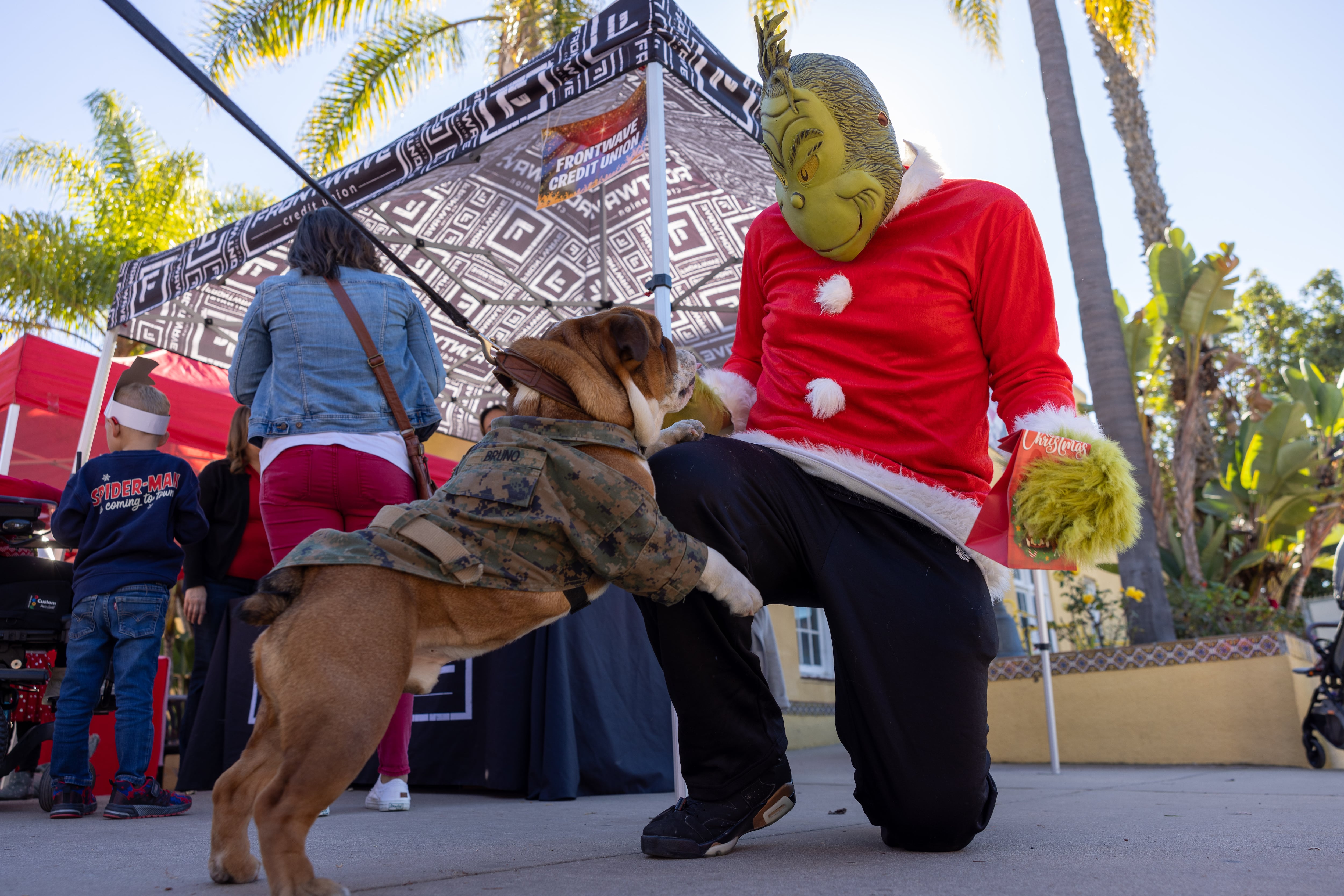It was a case of perfect timing that Lynn Gustafson found the PGA HOPE program last year.
The Illinois Army National Guard veteran was at her local driving range one afternoon when she saw a banner about a program offering free golf lessons to veterans. Gustafson, a newcomer to the game and looking to improve, was eager to register.
“A free program to come and work on your skills for veterans? I was like, ‘sign me up,’” she said. “I’m with my peeps.”
The lessons brought Gustafson to Storms Golf driving range in Brookfield, Wis., on a sunny and windy Saturday afternoon along with about 20 fellow veterans for the second week of lessons in the HOPE program run by Professional Golfers’ Association member Rob Elliott. PGA HOPE brings together veterans from all walks of life and all levels of playing ability for a couple of hours a week for a seven-week program.
“I have no veteran background,” said Elliott, who is on the national board for the PGA of America and is a co-chairman for PGA HOPE, an acronym for Helping Our Patriots Everywhere. “This has been a passion of mine for three years. I just thoroughly believe in it. It’s a great program.”
It’s also a program growing in popularity. This is the third year that Elliott is hosting lessons in the Milwaukee area, and he is planning more in the future. There are regular lessons held throughout Wisconsin with other teaching professionals.
Nationally, Elliott said PGA HOPE will serve about 12,000 veterans with free lessons this year, with about 13,000 more on a waiting list. He said the goal is to serve 30,000 veterans in five years.

“We went from 4,000 to 8,000 to 12,000, which is awesome,” he said.
PGA HOPE has a memorandum of understanding with the Department of Veterans Affairs, which refers veterans with post-traumatic stress disorder or other military-related ailments to the program.
This class of veterans consists of veterans of all ages and golf abilities, including one who is blind. Golf teachers such as Elliott and fellow PGA members Eddie Terasa and Peter Krause, who helped with the week’s lesson, are trained in military culture and adaptive golf techniques to volunteer in the program.
Vietnam veteran John Harvey, who was named the Wisconsin ambassador for the program two years ago, oversees the program as a liaison between the veterans and PGA pros.
“I’m just a phone call away for these vets, which adds a personal touch,” said Harvey, who served in the Air Force from 1972 to 1975. “Everyone had a different experience in the military. Some sat behind a desk for 20 years, others served overseas in combat. Everyone’s a little different, but until you find out about their story, you change the way you talk to them, and that’s where my job comes in.
“If they don’t show up for the lessons, I call them. If a veteran calls them, they’re more than likely to open up. I’ve come across two or three veterans already this summer who were in crises and I called them up.”
Another veteran who has been touched by the program is Wayne Cuny of Waukesha, Wis.
Cuny, a Flint, Mich., native, has been involved with the local PGA HOPE program since it started in Milwaukee three years ago. He only started golfing a year earlier than that when his brother-in-law got him interested in the game.
“I have PTSD and my brother-in-law said, ‘Why don’t you try golfing?’” Cuny said. “I couldn’t hit the ball, but I went out and had some fun with him to get outside.”
Cuny’s game has progressed to the point where he can break 50 for nine holes, a feat he proudly told the instructors before the group lessons started.
More importantly than shaving a few strokes off his golf score, the program gives Cuny a chance to connect with veterans who share backgrounds similar to him. Cuny joined the military out of high school in 1986 and served until 1992, which included serving during Desert Storm. He’s currently a pipefitter and lives in Waukesha, a city of about 70,000 located west of Milwaukee.
“It’s hard to adjust from the military. I still have a hard time,” Cuny said. “Sometimes with work I’m treated more like the military so it can be hard. Coming out here allows me to think about letting go and relaxing. We all can relate to what everyone is going through, and we can help each other relax and enjoy this.”
Each golf teacher adds his or her touch to the program; in Elliott’s version the golfers go through six weeks of lessons focusing on all the areas of golf— Saturday’s lessons included putting, chipping and iron play. In the seventh week, the golfers celebrate with a nine-hole outing at a local course and gather for prizes and also receive a card saying they’ve completed the program — a reward for a job well done and a valuable money-saver at courses that offer discounts for veterans.
“When we graduate we can get a card and a discount, because when you ask for a discount, you don’t always get it,” Gustafson said.





